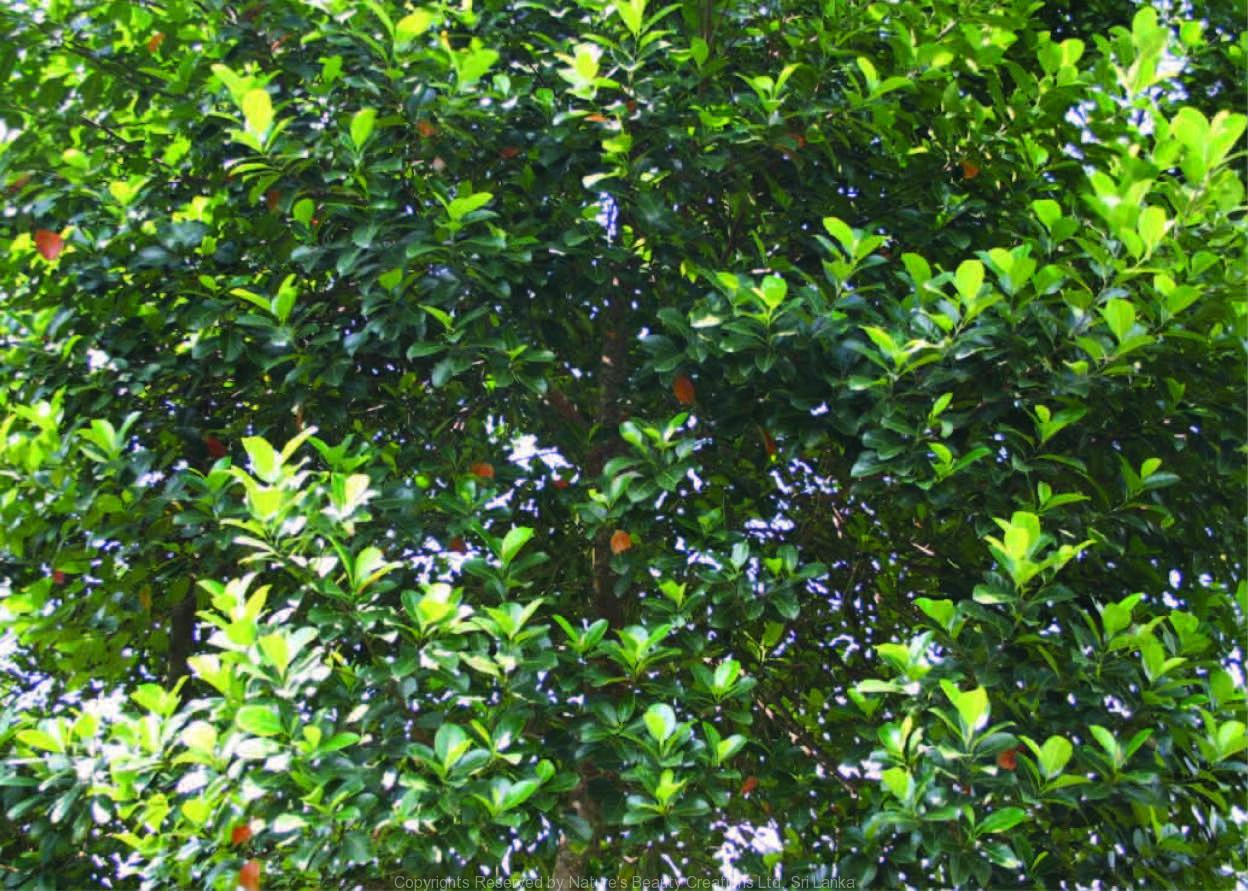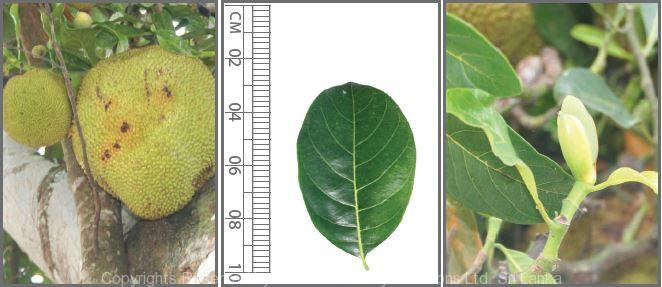

Traditional Knowledge
Useful plant parts :
Leaf, root, fruit, seed and latex
Uses in traditional medicine :
- Latex of the young shoots is applied on swellings
- Salad prepared with very young leaves and red onion is taken for gastric ulcers
- Herbal tea prepared with mature leaves is taken to reduce blood glucose levels
- Leaves are used to treat insomnia and urinary calculi in bladder
- Roots are antiasthmatic and used to treat skin diseases
Scientific Research
Chemical constituents:
Protein: jacalin, prenylflavones: artocarpine, artocarpetin, artocarpetin A, cycloheterophyllins, artonins A and B from plant and artocarpanone from wood; phenolics: artocarpesin, norartocarpetin and oxyresveratrol from fruit and heterophylol from roots; chalcones: artocarpusins A–C, artocarmitins A–C, artocarmins A–D, arylbenzofuran derivative: artocarstilene A from twigs and wood
Bioactivity :
Methanol extract of root bark and fruits: antibacterial; artocarpesin: anti-inflammatory; methanol extract of seeds: cytotoxic; jacalin: can be used for tumour detection; artocarpanone: skinwhitening agent, antioxidative; ethanol extract of leaves: hypoglycaemic, hypolipidaemic
Clinical:
Hot water extract of leaves shows improved glucose tolerance in healthy adults and diabetic patients
References : Arung, E. T. et al., (2006), Inhibitory Effect of Artocarpanone from Artocarpus heterophyllus on Melanin Biosynthesis, Biological and Pharmaceutical Bulletin, 29(9), 1966-1969. Di, X. et al., (2013), New phenolic compounds from the twigs of Artocarpus heterophyllus, Drug Discov Ther, 7(1), 24-8. Fang, S. C. et al., (2008), Anti-inflammatory Effects of Phenolic Compounds Isolated from the Fruits of Artocarpus heterophyllus, Journal of Agricultural and Food Chemistry, 56, 4463-4468. Feng, N. K. et al., (1998), Scavenger and antioxidant properties of prenylflavones isolated from Artocarpus heterophyllus, Free Radical Biology & Medicine, 25(2), 160-168. Fernando, M. R. et al., (1991), Effect of Artocarpus hetero p~phyl~ us and Asteracanthus loivgifolia on glucose tolerance in normal human subjects and in maturity-onset diabetic patients, Journal of Ethnophurma- cology, 31, 277-282. Kabir, S., (1998), Jacalin: a jackfruit (Artocarpusheterophyllus) seed-derived lectin of versatile applications in immunobiological research, Journal of Immunological Methods, 212(2), 193-211. Khan, M. R. et al., (2003), Antibacterial activity of Artocarpus heterophyl- lus, Fitoterapia, 74, 501-505. Lin, C. N. et al., (1995), Flavonoids from Artocarpus heterophyllus, Phytochemistry, 39(6), 1447-1451. Nguyen, N. T. et al., (2012), Tyrosinase Inhibitors from the Wood of Artocarpus heterophyllus, J Nat Prod. Omar, H. S. et al, (2011), Antioxidant activity of Artocarpus heterophyl- lus Lam. (Jack Fruit) leaf extracts: remarkable attenuations of hyperglyce- mia in streptozotocindiabetic rats, scientific world journal, 11, 788-800. Patel, R. M. and Patel, S. K., (2011), Cytotoxic activity of methanolic extract of Artocarpus heterophyllus against A549, Hela and MCF-7 cell lines, Journal of Applied Pharmaceutical Science, 1(7), 167-171. Wei, B. L. et al., (2005), Antiinflammatory Flavonoids from Artocarpus heterophyllus and Artocarpus communis, Journal of Agricultural and Food Chemistry, 53, 3867-3871.
Copyrights Reserved By
Natures Beauty Creations




